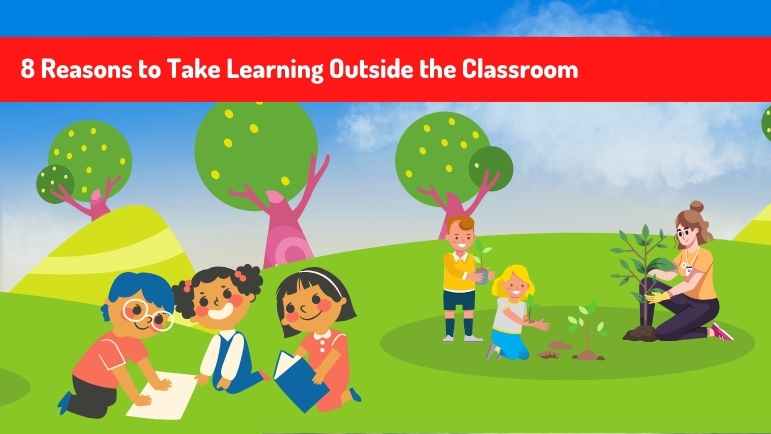
In today's educational landscape, educators are increasingly recognizing the benefits of taking learning outside the traditional classroom setting. Outdoor education offers a wealth of opportunities for students to engage with the world in meaningful ways and deepen their understanding of various subjects. Here are eight compelling reasons to incorporate outdoor learning into your curriculum.
Hands-On Learning: Outdoor environments provide a rich, tangible experience that allows students to interact with the natural world or historical sites. Whether it's observing plant life, examining geological formations, or exploring historical landmarks, hands-on experiences foster a deeper understanding of academic concepts.
Enhanced Creativity: Nature and diverse outdoor settings stimulate creativity and imagination. Encouraging students to create art, write poetry, or solve problems outdoors can lead to innovative thinking and a broader perspective on subjects like science, literature, and art.
Improved Physical Health: Spending time outdoors promotes physical activity and a healthier lifestyle. Incorporating nature hikes, outdoor games, or simply letting students enjoy fresh air can help combat sedentary habits and enhance overall well-being.
Social and Emotional Development: Outdoor activities often require teamwork, communication, and cooperation. These experiences help students build interpersonal skills, develop resilience, and foster a sense of community, all of which are essential for personal growth.
Environmental Stewardship: Experiencing the beauty and fragility of the natural world firsthand can instill a sense of responsibility for the environment. Encouraging eco-conscious behaviors and discussions about conservation is vital in today's world.
Real-World Application: Outdoor learning provides opportunities for real-world application of classroom knowledge. For instance, studying ecosystems in their natural habitat or calculating angles while surveying land for a project can make academic content more relevant and memorable.
Cultural and Historical Appreciation: Visiting museums, historical sites, or cultural landmarks outside the classroom can bring history and culture to life. Students can gain a deeper appreciation for their heritage and the world's diverse cultures.
Increased Engagement: The novelty of outdoor learning can rekindle students' enthusiasm for learning. It breaks the monotony of traditional classroom settings and captivates their attention, making learning more enjoyable and memorable.
Incorporating outdoor education doesn't mean abandoning the classroom altogether but rather finding a balance that best serves your curriculum and students' needs. It's about harnessing the benefits of the natural world and diverse outdoor settings to enrich the learning experience and prepare students for a brighter future.
By embracing outdoor learning, educators can inspire students to connect with the world around them, fostering a lifelong love for learning and a deeper understanding of the subjects they encounter.